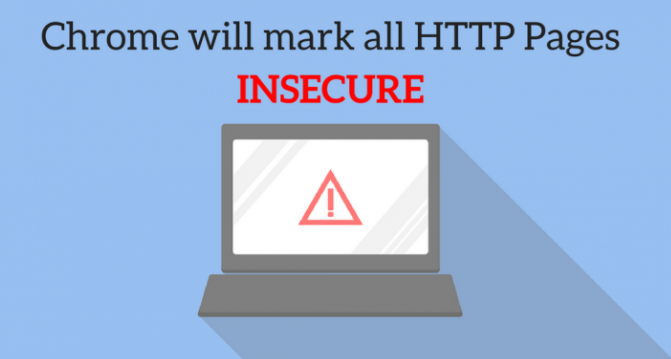Google is flipping the script on website security

by Rob Austin
If your site doesn’t have an SSL (Secure Socket Layer) certificate, pretty soon it’s going to look a whole lot more suspicious to your users. Google is about to “flip the script” when it comes to viewing secure content over the web, and that’s probably a good thing.
Typically in the past, secure websites like your bank would show a green padlock next to your bank’s URL. This demonstrated to the user the connection between your computer and their computer via the website was secure, and that the information was encrypted so that no one could intercept valuable data like passwords or account numbers.
When you visited a site without an SSL, the green padlock image was missing most people probably didn’t even notice, and or thought something like “well, it’s not my bank, so what’s the big deal?” It turns out that lack of security IS a big deal. The web is a dynamic place, and the bad guys are always looking for new ways to use your resources and information to their advantage.
Imagine this scenario- you come across a new site asking you to sign up for some sort of newsletter or account for some reason. You might think “It’s not like I am giving them my credit card or anything!” You use their contact form to sign up, and because you are like most people, you use the same password to create that account. It’s not a great idea, but it’s even worse because the connection to that site wasn’t secure, and some bad guy was “watching”. Now Mr. Bad Guy has your email and your typical password, and he’s going to try to sign into all sorts of sites to see if he can “be you”!
This, in a nutshell, is why Google is putting the onus on site owners to keep their users’ info secure. And with the upcoming update to Google Chrome, it’s why your users will be warned when any page that asks for information is NOT secure. Ask WorkSite to help add an SSL to your website so you don’t scare off potential users and customers.
Recommended Posts

Streamline Your Social Media Workflow: Achieve Cross-Platform Promotion with WP to Buffer
June 18, 2024

Why we use WordPress for our websites
June 3, 2024


